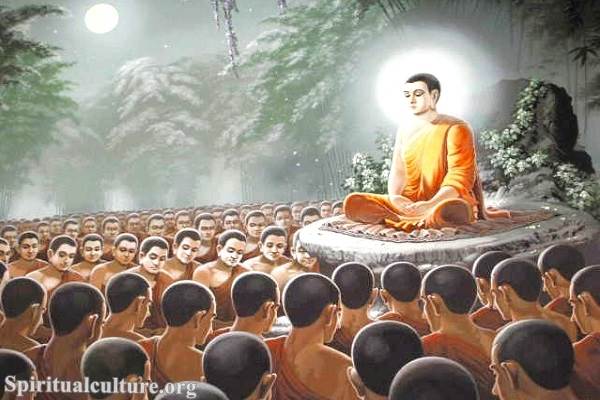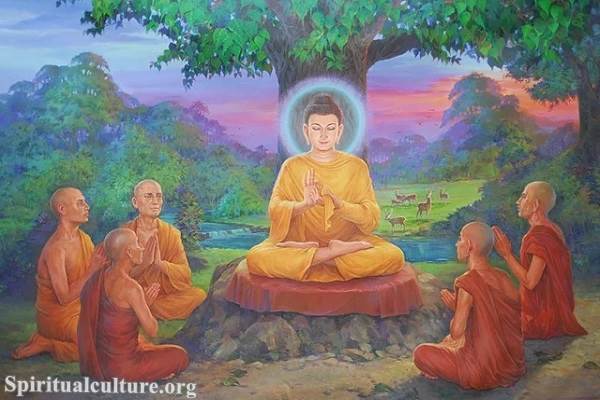Buddhism emerged in ancient India in the 6th century BCE, during a time of significant cultural and religious changes. The Buddha, who lived from approximately 563 to 483 BCE, was born as a prince into a Hindu family, but he rejected the Hindu beliefs and practices that he encountered. Instead, he developed a new spiritual path that aimed to help people end their suffering and attain enlightenment.

Buddhism is based on the teachings of the Buddha, who taught that the root cause of suffering is ignorance and craving. He also taught that the way to end suffering is by following the Eightfold Path, which involves developing the right understanding, intention, speech, action, livelihood, effort, mindfulness, and concentration.
While Buddhism and Hinduism share some similarities, such as the belief in reincarnation and the existence of a soul, there are also significant differences between the two religions. For example, Hinduism has a more complex caste system, a large pantheon of gods, and a greater focus on rituals and devotion. Buddhism, on the other hand, is less concerned with rituals and is more focused on individual practice and personal spiritual development.
In conclusion, while Buddhism was influenced by the cultural and religious context of ancient India, including Hinduism, it developed as a separate and distinct religion with its own unique beliefs, practices, and philosophical perspectives.



